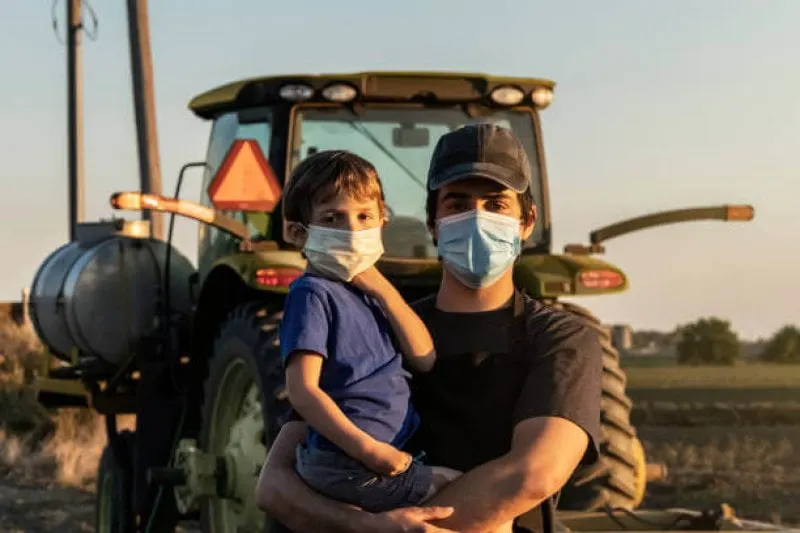‘Covid exposed so much that was broken’: How can we remake our post-pandemic food system?
‘Covid exposed so much that was broken’: How can we remake our post-pandemic food system?


The United States spends $1.1 trillion a year on food. But when the impacts of the food system on different parts of our society — including rising health care costs, climate change and biodiversity loss — are factored in, the bill is around three times that, according to a report by the Rockefeller Foundation, a private charity that funds medical and agricultural research.
…
Health impacts are the biggest hidden cost of the food system, with more than $1 trillion per year in health-related costs paid by Americans, with an estimated $604 billion of that attributable to diseases — such as hypertension, cancer and diabetes — linked to diet.
In calculating the financial burden of environmental problems, the researchers evaluated direct environmental impacts of farming and ranching on greenhouse gas emissions, water depletion and soil erosion. They also looked at reduced biodiversity, which lowers ecosystems’ productivity and makes food supplies more vulnerable to pests and disease. They determined the unaccounted costs of the food system on the environment and biodiversity add up to almost $900 billion per year.
“Covid exposed so much that was broken,” [World Wildlife Fund’s Melissa Ho] said, “but building back better means supporting producers and connecting the dots to health, environment and business viability for farmers.”
Read the original post

 | Videos | More... |

Video: Nuclear energy will destroy us? Global warming is an existential threat? Chemicals are massacring bees? Donate to the Green Industrial Complex!
 | Bees & Pollinators | More... |

GLP podcast: Science journalism is a mess. Here’s how to fix it

Mosquito massacre: Can we safely tackle malaria with a CRISPR gene drive?

Are we facing an ‘Insect Apocalypse’ caused by ‘intensive, industrial’ farming and agricultural chemicals? The media say yes; Science says ‘no’
 | Infographics | More... |

Infographic: Global regulatory and health research agencies on whether glyphosate causes cancer
 | GMO FAQs | More... |

Why is there controversy over GMO foods but not GMO drugs?

How are GMOs labeled around the world?

How does genetic engineering differ from conventional breeding?
 | GLP Profiles | More... |

Alex Jones: Right-wing conspiracy theorist stokes fear of GMOs, pesticides to sell ‘health supplements’




 Viewpoint — Fact checking MAHA mythmakers: How wellness influencers and RFK, Jr. undermine American science and health
Viewpoint — Fact checking MAHA mythmakers: How wellness influencers and RFK, Jr. undermine American science and health Trust issues: What happens when therapists use ChatGPT?
Trust issues: What happens when therapists use ChatGPT? Fighting deforestation with CO2: Biotechnology breakthrough creates sustainable palm oil alternative for cosmetics
Fighting deforestation with CO2: Biotechnology breakthrough creates sustainable palm oil alternative for cosmetics Viewpoint: Video — Big Solar is gobbling up productive agricultural land and hurting farmers yet providing little energy or sustainabilty gains
Viewpoint: Video — Big Solar is gobbling up productive agricultural land and hurting farmers yet providing little energy or sustainabilty gains California, Washington, Oregon forge immunization alliance to safeguard vaccine access against federal undermining
California, Washington, Oregon forge immunization alliance to safeguard vaccine access against federal undermining 30-year-old tomato line shows genetic resistance to devastating virus
30-year-old tomato line shows genetic resistance to devastating virus The free-range chicken dilemma: Better for birds, but with substantial costs
The free-range chicken dilemma: Better for birds, but with substantial costs ‘You have to treat the brain first’: Rethinking chronic pain with Sanjay Gupta
‘You have to treat the brain first’: Rethinking chronic pain with Sanjay Gupta
